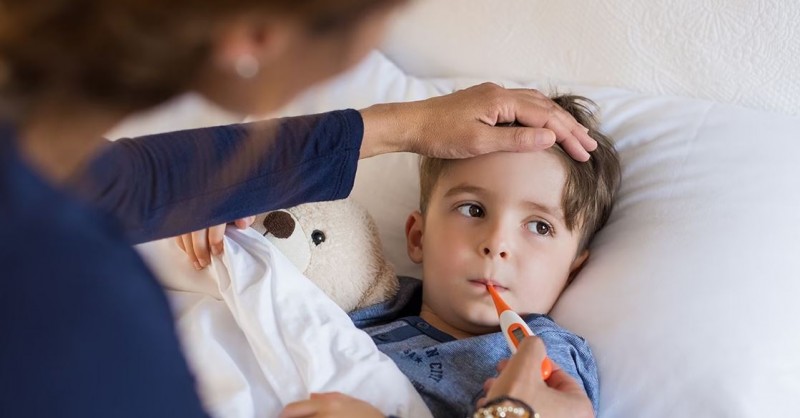
Children are vulnerable to various illnesses, ranging from common colds to more serious ailments. As caregivers, parents play a crucial role in managing their child's health, including administering medications when necessary. However, ensuring the safe and effective use of medications in children requires careful attention to detail and adherence to guidelines provided by healthcare professionals. In this article, we will delve into the importance of proper medication administration for children's health, focusing on two key aspects: checking seal integrity and monitoring expiration dates.
Importance of Checking Seal Integrity:
When parents administer medication to their children, they must first ensure the integrity of the seal on the medication bottle. The seal acts as a barrier that protects the contents of the bottle from contamination and maintains the potency of the medication. Once the seal is broken, there is a risk of exposure to external factors that can compromise the quality and effectiveness of the medication.
One common mistake that parents make is reusing medication bottles without thoroughly inspecting the seal. This can occur when a child's illness recurs, and parents resort to using leftover medication from a previous episode. However, doing so can pose serious risks to the child's health. Contaminants from the environment, such as dust, bacteria, or moisture, may enter the bottle and contaminate the medication. Additionally, prolonged exposure to air can cause the medication to degrade, reducing its efficacy.
Healthcare professionals advise parents to conduct a visual inspection of the seal before administering medication to their child. Signs of a compromised seal include tampering, cracks, or breaks in the seal. If any abnormalities are detected, the medication should be discarded, and a new bottle obtained from the pharmacy. By adhering to this practice, parents can minimize the risk of administering contaminated or ineffective medication to their child.
Furthermore, it is essential for parents to understand that once the seal is broken, the shelf life of the medication is significantly reduced. Medications are formulated to remain stable and potent within sealed containers for a specified period. However, once the seal is opened, the medication may begin to degrade more rapidly, especially if not stored properly. Therefore, it is crucial to use the medication within a reasonable timeframe to ensure optimal effectiveness.
The Importance of Monitoring Expiration Dates:
In addition to checking seal integrity, parents must pay close attention to expiration dates when administering medication to their children. The expiration date indicates the point at which the medication is no longer guaranteed to be safe and effective for use. Expired medications may have lost their potency or could have undergone chemical changes that render them harmful to consume.
Expired medications pose serious risks to children's health, as they may not provide the intended therapeutic effects and could potentially cause adverse reactions. For example, antibiotics that have expired may no longer be effective in treating bacterial infections, leading to prolonged illness or complications. Similarly, expired over-the-counter medications, such as cough syrups or pain relievers, may fail to alleviate symptoms, resulting in prolonged discomfort for the child.
Parents should make it a habit to routinely check the expiration dates of medications stored in their homes, particularly those intended for their children. This includes both prescription medications prescribed by healthcare providers and over-the-counter medications purchased from pharmacies. Expired medications should be promptly disposed of according to proper disposal guidelines to prevent accidental ingestion or misuse.
It is essential to note that the expiration date applies to sealed medications and does not account for medications that have had their seals broken. Once the seal is broken, the medication should be used within a specified timeframe, typically within a month, to ensure optimal efficacy. Parents should avoid using medications past their expiration dates, even if the seal remains intact, as the potency and safety of the medication cannot be guaranteed beyond this point.
Moreover, parents should be aware that storage conditions can impact the stability and shelf life of medications. Factors such as exposure to light, heat, and moisture can accelerate the degradation of medications, leading to premature expiration. Therefore, medications should be stored according to the manufacturer's instructions, typically in a cool, dry place away from direct sunlight and humidity.
In conclusion, ensuring the safe administration of medications to children requires careful attention to seal integrity and expiration dates. Parents must conduct regular inspections of medication bottles to check for signs of tampering or damage to the seal. Additionally, they should be vigilant about monitoring expiration dates and promptly discarding expired medications to prevent potential harm to their children. By adhering to these guidelines, parents can safeguard their child's health and promote optimal outcomes in the management of childhood illnesses.
WHO Reports Over 114.1 lakh New Cancer Cases and 910,000 Deaths in India
World Cancer Day 2024: Revolutionizing Cancer Diagnosis with ArtificiaI Intelligence
Say Goodbye to Your Sleepless Nights: Try These Effective Tips for a Better Sleep